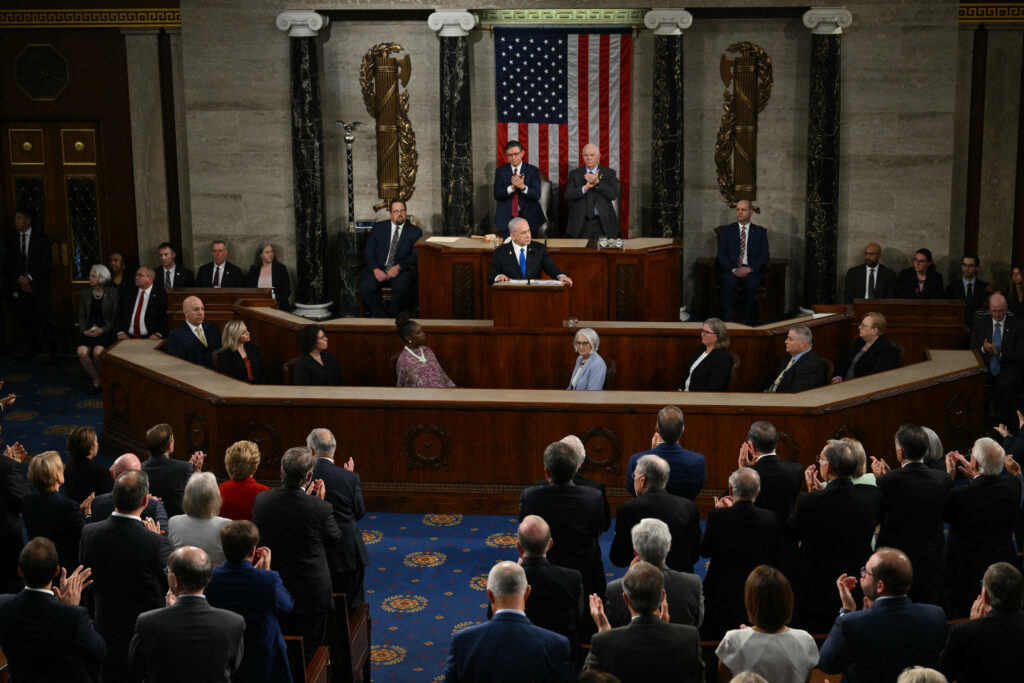1988: The Turning Point in the History of Targeted Killings
- - April 23, 2018
On 19 April, Dr Markus Gunneflo, lecturer of law at the University of Lund, gave us an overview of the legal and political issues surrounding targeted killings at MEI’s Transsystemic Law cluster event. He also explained how international law has been interpreted and invoked in response to issues arising from the use of force, territorial integrity, and human rights in light of counterterrorism efforts.
Gunneflo commenced his talk by referring to the assassination in 1988 of Khalil Al-Wazir, a prominent leader of the Palestine Liberation Organisation (PLO) who was killed by Israeli commandos in his home in Tunisia. After Tunisia logged a complaint with the United Nations Security Council (UNSC), the Council adopted resolution 611 condemning the killing of al-Wazir as aggression against the sovereignty and territorial integrity of Tunisia. The Third World sided with the PLO against state sponsored assassinations.
This condemnation from the UNSC, Gunneflo argued, rested on the achievements of the previous century, where principles such as non-intervention, respect for territorial integrity, and the non-use of force, were emphasized and respected by the international community. These principles had been built on the efforts of newly independent countries.
Gunneflo argued that there has been a concerted effort since then by the west – by the US in particular –to use international law to further its interests and goals. This effort began as early as the 1980s due to a series of events in the Middle East following the bombing of the US Marines barracks in Beirut in 1983. This is when Benjamin Netanyahu published Terrorism: How the West Can Win and when US Secretary of State called for an active defence against terrorism. The State Department Legal Adviser Abraham Sofaer and his colleague W. Hays Parks, Special Assistant to the Judge Advocate General, sought to turn international law against the Third World. Although the US abstained from resolution 611 in 1988, it framed assassination as an action that was necessary to preserve the rule of law. The legal advisor at the state department stated that the assassination was “not a struggle for the rule of law… but a battle to ensure that the rule of law serves the interest and freedom of the civilized world”.
In his lecture, Gunneflo also highlighted the timeless use of the “unwilling and unable” doctrine to justify practices like military intervention. In the colonial era, this language was used by the colonial powers to justify their rule over states that were “less organized or less civilized” — a description that was used to describe countries exclusively from the global south. We then saw the same rhetoric being used by the US in defence of its abstention from resolution 611. Although this doctrine isn’t widely accepted, Gunneflo argues, this has not stopped international scholars from promoting the unable or unwilling doctrine. The lack of acceptance from the majority of the international community has not prevented states from using this rhetoric to justify war.
During the Q&A session, a participant asked why some analysts have tried to advocate for a human rights approach to counterterrorism, instead of treating terrorism and human rights as mutually exclusive concerns that are traded off at the expense of each other. In response, Gunneflo noted that it was interesting how the UN Human Rights Council had approached the issue from an individualist human rights perspective; only China, Iran, and Algeria raised the issue of state sovereignty and territorial integrity. This appears to indicate a symptomatic shift in discourse that values the rights of individuals over the territorial integrity and political independence of states that were so cherished during decolonization.
More in This Series
More in This Series
- Jean-Loup Samaan
- - July 11, 2024
- Aisha Al-Sarihi, Ehsan Rasoulinezhad, Jinseok Sung
- - June 20, 2024
















